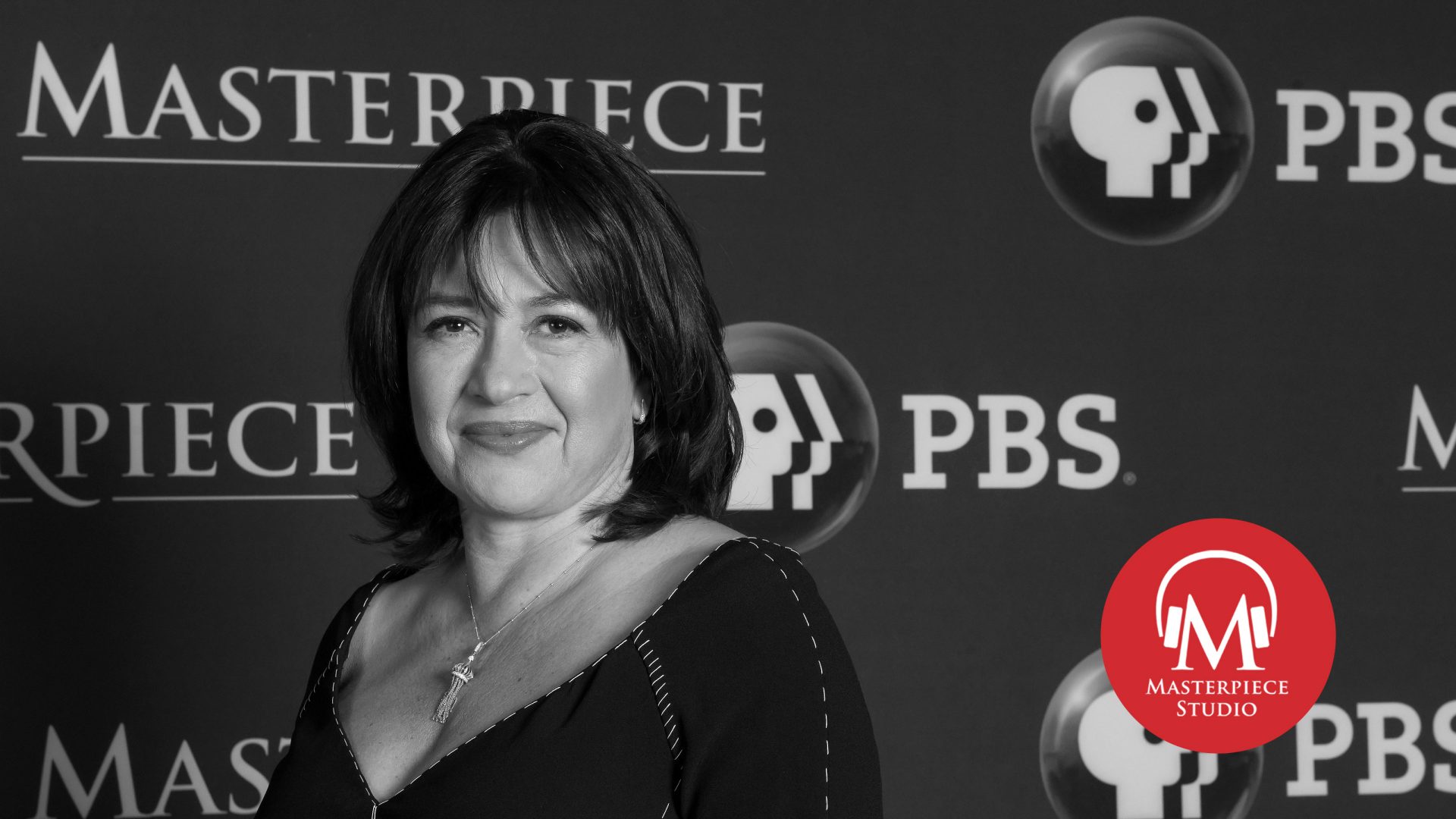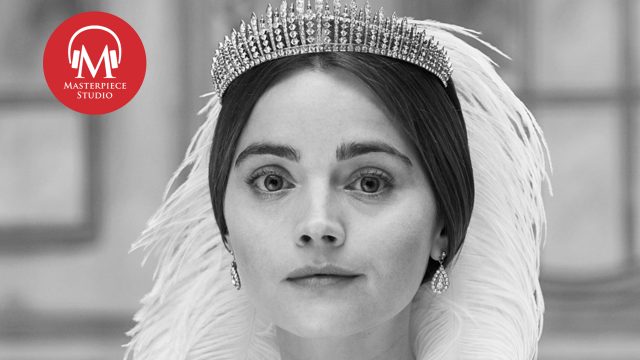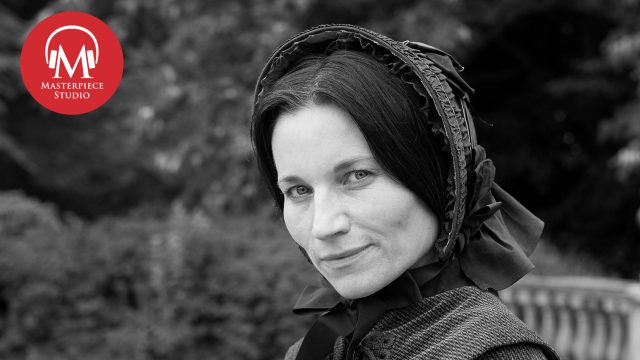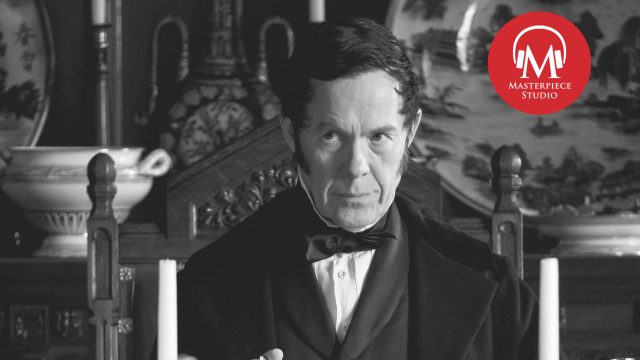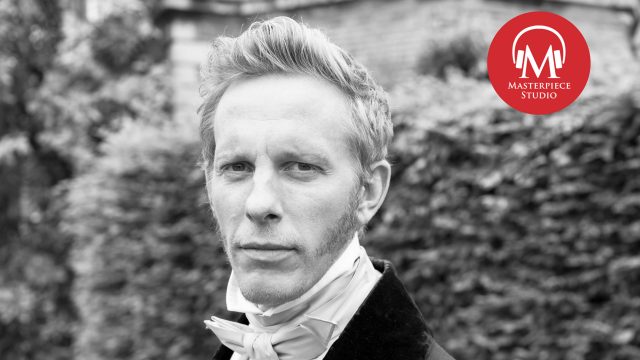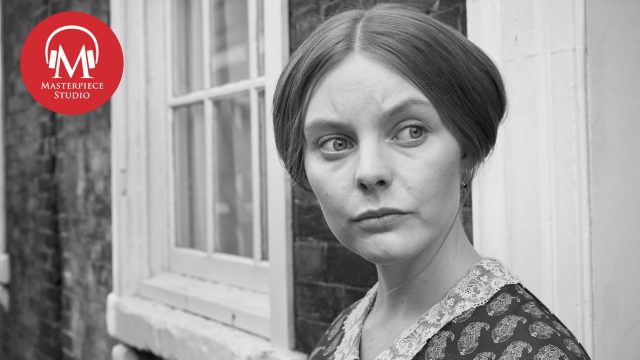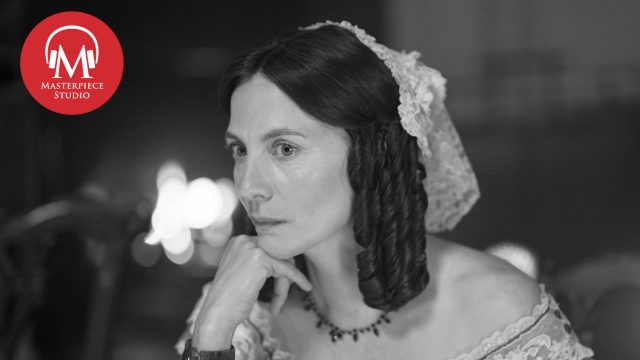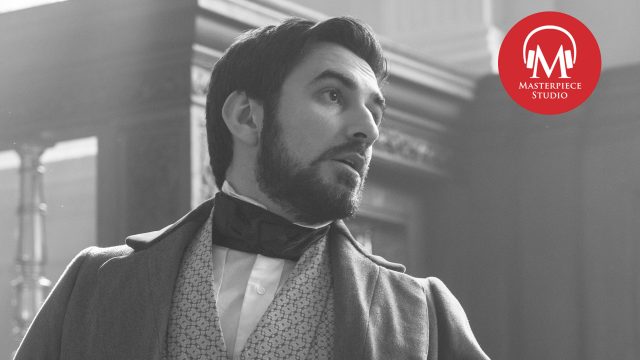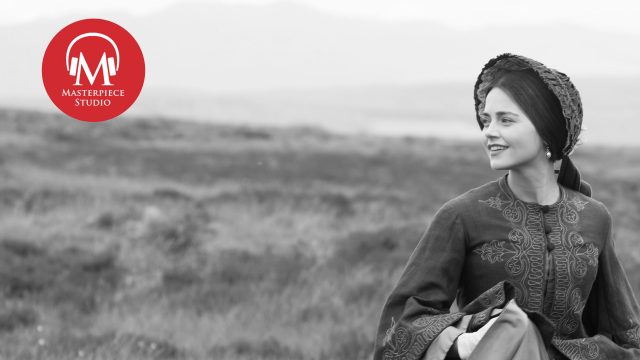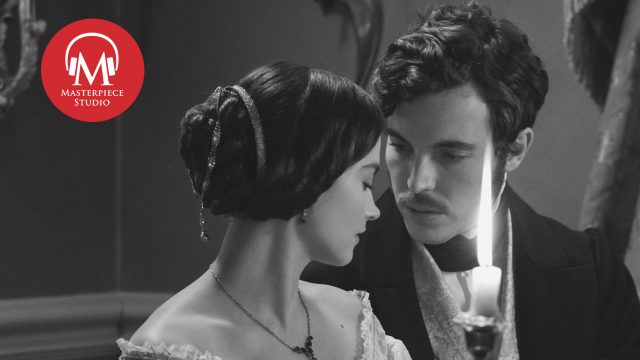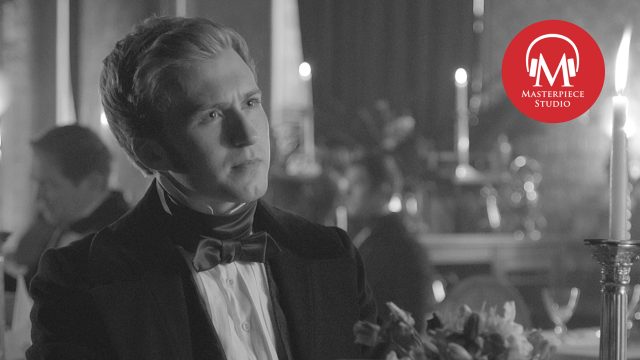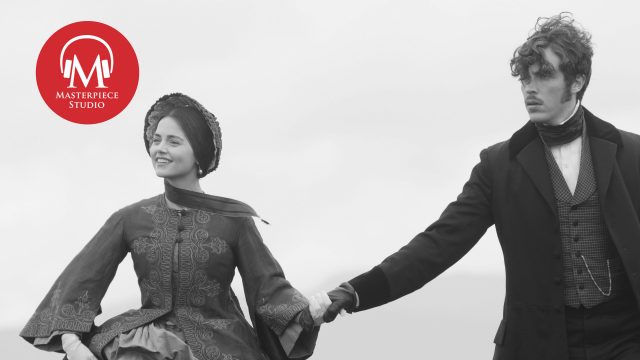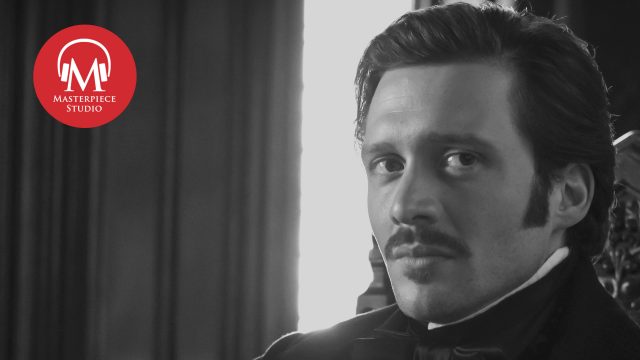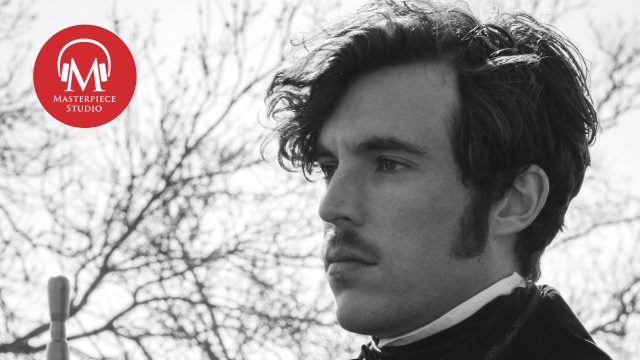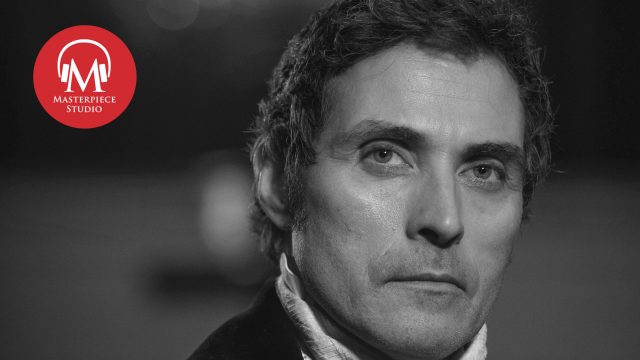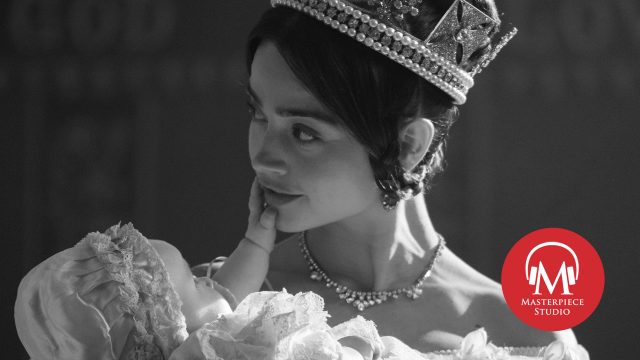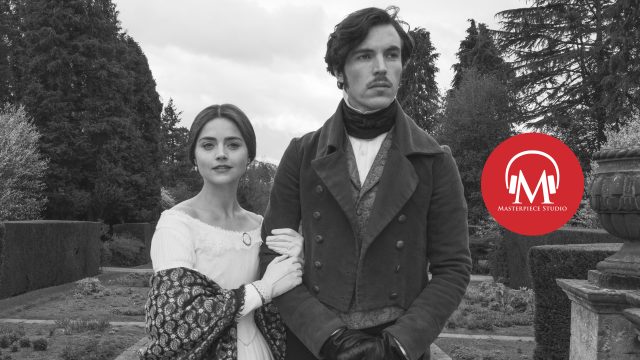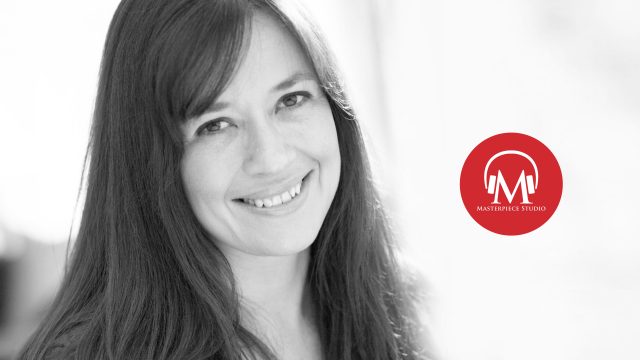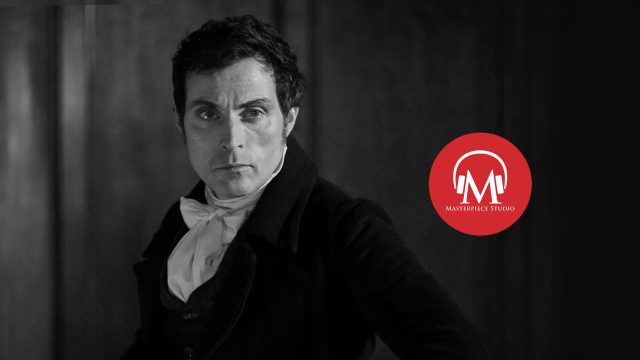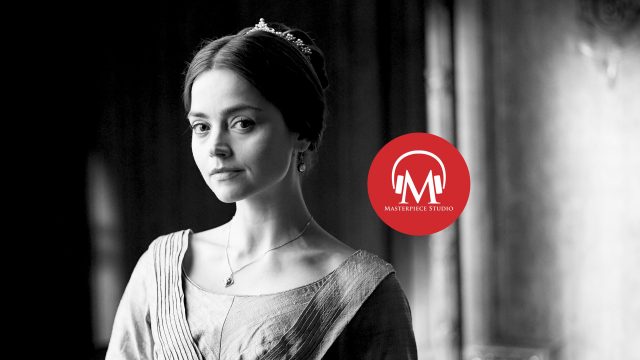Jace Lacob: I’m Jace Lacob, and you’re listening to MASTERPIECE Studio.
If you find yourself pleasantly surprised by the playful mix of events in this second season of VICTORIA, you have series creator Daisy Goodwin to thank.
SCENE
Albert: So you’re not going to let me look in the box?
Victoria: Say please.
Albert: Please Victoria, open the box.
Jace: Goodwin is a novelist, historian and poet, and the subtle elegance of her background comes through in every scene of the series.
SCENE
Victoria: This is such difficult times, I wish you were not so far away.
Lord M: Oh, I feel quite certain that you can manage without me now, ma’am.
Jace: Not everything is true-to-life in Goodwin’s version of Victoria, but she’s still closely following the timeline of the Victorian monarchy.
Daisy Goodwin: I suppose I have the great advantage over a lot of writers in that, you know, there are events, dear boy, events which I can incorporate into my show….so there some pretty great stories there to be plucked.
Jace: Goodwin spoke with us about the historical realities of her vision of Queen Victoria, what’s entirely invented in this second season, and where the two will meet in the next five episodes of the series.
And we are joined this week by Victoria creator, Daisy Goodwin.
Daisy: Hey Jace, how you doing?
Jace: I wondered if there would be a time jump between seasons but we pick up at the beginning of Season Two just six weeks after the birth of the Princess Royal. How did you choose this point in time?
Daisy: Well it’s funny when I started writing Victoria I thought that we would rush through her round and we’d get you know we’d do 10 years in the first episode. But as I started to write it I realized that the slower you go, the more interesting it is, in a way. There was some talk actually of skipping to the birth of the second child for the first episode but actually when I came to think of it I realized that the nub of Victoria’s dilemma over series two is really how did she cope with being a queen, a wife, and a mother? And so I just remember what it was like, you know, after I had my own children and how hard it was to go back to work, and I wanted to, you know, explore that for Victoria.
Jace: Now, Victoria or Little Vicky as Wellington rather tongue in cheek calls her, is underestimated or undermined by the men around her. It’s easy to chalk that up to 19th century social constructs but the notion of it of a young woman or even a woman in power today is still scares many people. Why do you think that is?
Daisy: Well you know there’s this phrase which is only used about women which is that they’re hysterical and you know that was a 19th century phrase, which literally meant it’s a wandering womb and so women are always considered to be unreliable because of their hormones. And I think, you know, that’s what happened to Victoria that, you know, she was the first monarch to give birth while on the throne. You know that’s a very, very big deal and you have to remember that the whole country is holding its breath because is she going to survive this very perilous ordeal? Because giving birth in the 19th century is super dangerous if you’re a woman. You know, it wasn’t until 1842 that doctors realised it might be a good idea to wash their hands and then infant mortality went from sort of you know 50 percent to 5 percent, or something. I suppose what I what I was trying to get at is that there she is and she’s you know in series one she’s she’s become a queen, she’s chosen her husband, she’s you know, she’s got pregnant, she’s given birth to the heir to the throne and then then it’s like this weird thing she’s come back from maternity leave and she’s discovered that everybody is getting on very well without her.
Jace: I love reading your scripts, they’re full of insight and rather apt description such as this one: ‘Victoria looks at him, every inch the CEO’ or she is — this is my favorite — She is vanquished by the eyebrow. Given your background as a novelist, do you approach writing scene directions in a similar fashion?
Daisy: Well they’re a chance for me to have fun. You know, like I remember writing a scene direction for series one where, you know they said you know, you can’t have another ball and I said no, this is the 19th century equivalent of Dancing Round Your Handbag, it’s not really a ball, it’s just a kind of impromptu thing. No, I love writing scene directions because it’s a way of kind of bringing some humor to the situation and also trying to bring it into the modern age, because yes, the language may sound a little bit Victorian at times, but you know all that all the the things that happen in the show all of them have modern resonances.
Jace: Victoria and Albert. Their relationship has always been rather passionate and stormy, we’ll say and that holds true into the second season. Is the tension between them just that of parents of a newborn, or are there deeper issues at play?
SCENE
Albert: Is it right, Victoria, for us to hold a ball when so many of your people are starving?
Victoria: This is a way of trying to help them, Albert.
Daisy: I think their story is very much a power struggle, and it’s a really interesting one. I mean the thing that I have sort of the image I have in my head is always of Elizabeth Taylor and Richard Burton, who were both you know fabulous, beautiful, intelligent, clever people who had a real passion for each other but they fought like cats and dogs. And I think that there’s an element of that in Victorian relationship. I mean you know, Victoria you know they have this real physical attraction feature that they dont they don’t stray but you know Victoria’s is all the power and Albert you know, wants that. And every time that Victoria gets pregnant, he gets a little bit more power. So there’s always got to be this question for Victoria. ‘Well you know does he love me for myself, or does he does he want what I’ve got?’ you know, and I think that’s the nub of their relationship, and there’s got to be a little bit of a sense in Albert’s mind of, ‘Yeah she’s the queen but I would do so much better.’ And I think that I think they can have that, there can be that dichotomy, and still they can fancy each other like crazy and they and they have you know they really have the hots for each other, and then there’s the whole question of the children, and I think you know childbirth and all of that Victoria describes it as the ‘Schattenseite’ of her marriage which is a German phrase which means the shadow side….it’s a very sophisticated relationship. They do love each other but there is that you know the power balance between them is constantly changing and it’s very volatile and Albert is very controlling and Victoria hates being controlled. So it’s it’s an interesting cocktail there.
Jace: What were the challenges involved with devising a second season in Victoria? Were there any challenges?
Daisy: Were there any challenges there were nothing but challenges. Well I mean I suppose I have the great advantage over a lot of writers in that you know there are events, dear boy, events which I can incorporate into my show. So you know there some pretty great stories there to be plucked. Like you know, the Irish potato famine, the first Afghan War, there’s the story of Albert’s real parentage, there’s Victoria’s postnatal depression, you know, there’s the whole reform of the corn laws which sounds really boring but if you think about it in terms of how similar it is to Brexit then it it has a real resonance, I think, for today’s audience, so I suppose the challenge for me to read a show that is you know compulsively watchable, entertaining, funny and that will always that you will learn something from. But it will also make you feel emotionally involved. And you know I want all those things and you know if that if if we get them then I’m happy.
Jace: One of several casting coups this season is the casting of Dame Diana Rigg who as the Duchess of Buccleuch. She was Victoria’s mistress of the robes and she’s she selected from the very bottom of Sir Robert’s Peele’s list of suitable candidates. How did Dame Diana Rigg come to be involved in the show?
Daisy: Well it’s interesting I first met Diana Rigg when I was 18 and my father who was a film producer, had made an Agatha Christie film called ‘Evil Under The Sun’ which starred her and Maggie Smith. And so I remember her from that time I thought she was hilarious then, and it was rather wonderful because I when I came to write series two I thought what we need is in the show is is a Lady Bracknell character we need someone who can speak truth to power and I have an older woman in the show and someone suggested Diana Rigg and I thought yes, that would be astonishing. So I went to see her and she was like Yes. No she she deigned to take part and she was terribly funny. She said, ‘Well of course if you need to, I can bring my own jewels.’ Which was very generous of her I thought. And she’s fabulous. There was a real Duchess of Buccleuch. But in fact the real Duchess of Buccleuch was a lot younger than Diana but I thought it I thought an older character would give more depth and sort of gravitas to the show. I guess Buccleuch is one of my favorite characters to write because she’s terribly rude. She’s xenophobic but she has a kind of wisdom that comes with with age. And now she’s the one who spots that Victoria has postnatal depression. She says you’re not the first woman to be in low spirits after the birth of a child and I think that’s the first time you realise that here is a woman who’s been who’s seen it all done it all you know knows everything.
Jace: I do love the moment between the two of them where they talk about postnatal depression.
Daisy: Yeah.
SCENE
Buccleuch: You’re not the only woman who has felt herself in low spirits after the birth of a child. I experienced something similar after the birth of my daughter, Mary. And yet I only had an estate to oversee. Not a country.
Victoria: The birth was…the birth was very distressing. Nothing has become easier since.
Buccleuch: But it will. I know how hard it was for you to go out today. But I also know that tomorrow it will be easier.
Jace: And it is this really tender moment between the two considering how flinty yes she has been up until this point. What did the Queen in real life think of Buccleuch. What was their relationship like?
Daisy: They were very good friends but of course the real Buccleuch was was much closer to the Queen’s real age and they were great friends and they continued to be great friends and she was so it was probably a different type of relationship but I felt that because her relationship with her mother is so complicated that I thought it would be good for her to have someone in the mix who could who could provide that kind of motherly advice and that’s what I want to do with Buccleuch and later in the series you’ll see that she is surprisingly broadminded about the gay relationship between two of the characters which you’re not expecting.
Jace: The beauty of the waltz moment gives way to another attack for Lord M who has to be rescued by Lady Portman. Why is he so resolute here that Victoria not know the truth about his condition?
Daisy: I think that well I think Lord M is a proud man and he doesn’t want to be pitied by Victoria. You know he knows that his number’s up but he doesn’t you know he wants to preserve the relationship that they had. He doesn’t want to be seen by her as a as a as a shadow of his former self. And I think it’s about his pride and I think she respects that.
Jace: I love that brief scene between Lord M and Albert at Westminster Hall where they shake hands and finally achieve some sort of rapprochement.
Daisy: Oh.
Jace: Why was this moment important for you?
Daisy: Well I think it is a way of you know for for Melbourne to pass the baton and to acknowledge that Albert is a good husband for Victoria. I thought it would be interesting to have a scene between those two, actually, the sort of passing of Melbourne is the end of the long 18th century and it’s all about the new world and about science and about you know this new bright new future. And Melbourne’s always looking back and Albert’s always looking forward and you know and Melbourne says Well I wish I’d built something I wish I’d done with my life and I think he’s full of all that regret and I think. And I think Albert understands some of that. Possibly not all of it but he understands some of that.
Jace: Now my favorite sequence, not surprisingly, is the beautiful scene with the mechanical Songbird Victoria gives to Lord M. so much is said between the two of them without actually saying…
Daisy: Yeah.
Jace: …anything. How difficult was it to write this scene whether or not it is their final scene?
Daisy: Oh it was well it was difficult to write and unbearable to watch because I was actually there when they were filming it. I kept sobbing in the background. They finally had to throw me out because I was making so much noise that I just find it the most poignant scene ever. Actually that episode is a real tearjerker. I mean it just not just not just Lord M but also Dash passes away in that episode and I suppose I’ve used Dash as a kind of metaphor for what she’s lost with Lord M. I mean so when she talks about Dash and you know she thought she would always be there, and all of that. She’s not talking about Dash, really. I mean she is but she’s also talking about you know this great figure in her life who who is you know the candle is blowing out there.
SCENE
Albert : Oh liebes, oh I’m so sorry.
Victoria: He was always there.
Albert : I know.
Victoria: I can’t bear it.
Albert: Yes you can. He was old. It was his time to come.
Jace: Lord M suffered a stroke 14 months after he left the political sphere but he survived another seven years to its death in 1848. Is it possible that Lord M might return or is this his swan song?
Daisy: Oh God. Don’t tempt me. Obviously, I would like Lord M to be in every single episode. But you know he has other commitments Lord M, he’s off playing a Nazi. So who knows. Never say never. That’s probably the end of Lord M. But. If I were you I’d be very happy to write more for Rufus if he wanted to do it. Historically we might be stretching it a little bit but you know given the number of people who the fans who wanted Victoria to marry Lord M. Um I don’t know what to say.
Jace: So you’re now writing an alternate history version where that actually happens..
Daisy: Oh goodness. I mean I’m not writing it but there are a lot of people out there who are and some of it’s quite blush making.
Jace: Before this next question, a brief word from our sponsors…
Masterpiece Studio is brought to you by Viking. Explore the world in comfort, by river and sea. Learn more at vikingcruises.com.
Jace: Season one seemed to wrap up the romance between Skerrit and Francatelli, but Francatelli’s back, which means the story of these star crossed lovers continues. What was behind your decision to bring Francatelli and Ferdinand Kingsley back to Buckingham Palace?
Daisy: Oh I wonder. He’s so gorgeous. He’s such a good actor and I I felt that their story hasn’t really finished and in fact it was interesting because I was going to have them go off into the sunset together at the end of episode 1, series 1 but as the show was playing out we realised that they were such a good story. We thought that they deserved a bit more time in the limelight so we we we decided that we would bring them back and I love them together I love I think I think Nell Hudson and Ferdy Kingsley are such great actors and you know I think their stories are wonderful and also I think that he’s you know he’s a real character. He had real ambitions, real dreams and you know he really is good. He cared very much about trying to educate the lower classes of the day in how to feed themselves. I mean he’s sort of the Jamie Oliver of his day. In many ways and I love her because she’s about she’s a totally different vision of womanhood to Victoria.
Jace: In season one we get a sense of the chartist movement at play. But this season far we see very little of that. The general British public reaction to Victoria how popular was the queen at this period of her reign?
Daisy: You know her popularity waxed and waned. I mean you know, every time she has a baby she’s very popular everybody loves her babies we know. But then you know there are moments like when she throws this this ball this fantastic ball you know she’s doing it for noble motives she wants to help the silk weavers of Spitalfields. She wants everybody who comes to the ball to wear this Spitalfields Silk and not wear cheap foreign imports. But of course the optics of this event are not good because you know in the north there is widespread starvation because the harvests have failed and people don’t have enough to eat and there is this ball happening where Victoria’s dress is alone is worth 60,000 pounds in in their money so God knows how much would be worth today and all these aristocrats are turning up to the ball and so forth. And the way we try to play it is is to show that you know inside they are all stuffing their faces with foie gras, while outside they’re starving. So I think that that caused a lot of upset at the time you know there were questions asked in the House of Commons punch was very savage about it. I mean it was it was and it was an own goal and as I have Bacchalecuh, say you know, to Victoria, ‘No good deed goes unpunished.’ So she didn’t really think that one through. But you know she was put but then there are moments of great popularity you know so. So it’s a seesaw but I suppose what I would say is that you know we and there’s series in 1846 but two years later in 1848 three or four monarchies are deposed by the revolutionary movement sweeping through Europe. But Britain doesn’t even come close you know and I think that’s because basically it turned out but have established themselves as not just as royals but as a family that the great base of the great mass of the British population can identify with so they become part of the national consciousness as they become someone that they see these people not just as remote people in crowns but people like them. And I think it’s a very you know if you look at the iconography that’s coming out you see pictures of Victoria now Albert with little children and you know their pets and it’s it’s the equivalent of you know a modern photo shoot where the Princess of Wales you know where Kate is playing with a puppy or whatever. You know these are human beings these aren’t just people in Crowns and then very soon after this you get these to get photographs so suddenly they’re bringing they’re making the royal family real. And I think that’s one of the reasons that they the British royal family survives when so many dynasties do not in this era.
Jace: A flirtation simmers between Alfred and Drummond. Despite the fact that there is a death penalty in place in the UK for those found guilty until 1961. Were same sex relationships displayed openly at the court. And what was the Queen’s stance on homosexuality?
Daisy: You know the word homosexual was not actually used until the end of the 19th century I think it came into use with I don’t know. Havelock Ellis. So they didn’t have a word for it. I mean they had a word for sodomy. And I think sodomy was illegal but the idea that you know that men could have relationships or women could have relationships with each other was part of the culture. I mean you’ve got to remember, that the best selling poem of the mid Victorian era was ‘In Memoriam’ by Alfred Tennyson, which is you know you know an elegy to the great love of his life, Arthur Hallam, who died. And you know you could read it as you know as they did as a poem about a romantic friendship or if you read it from a now you just think well this is the man who was, you know, his lost lover. But you know they they seem to have no problem with this. So I think there I think now were very. Very quick to put people into categories but I think things are much more fluid in those days and I think there are all kinds of relationships that went on. Women regularly slept in the same bed you know they had very close loving friendships. Some of them may have just been close friendships some of them have been lesbian relationships. Who knows. I think that Victoria probably has no idea about what homosexuality was because she that concept didn’t exist. And you know famously she refused to believe that that there could be such a thing as lesbianism. But I think on the other hand she was quite worldly and she probably knew that some men like being with other men. I mean you know Tennyson was her favorite poet so I think I think it’s it’s wrong to interpret the relationship between Alfred and Drummond in the way that you know it’s your either one thing or the other. I think there are a lot of men in those days who liked boys but married women. I think there were a lot of women who liked other women but got married. I can’t possibly say that Queen Victoria knew or knew about it but my guess is that like most I mean like the current Queen and the Queen Mother she probably enjoyed the company of gay men very much because why not?
Jace: Did Victoria actually compare babies to frogs?
Daisy: Yes! Yes she did, she said, ‘I find infants terrifying, they look just like frogs to me.’
Jace: Did Coburg actually die in the arms of a prostitute?
Daisy: Who knows? He certainly spent a lot of time in their company, so it’s altogether possible.
Jace: Did Victoria suffer from postpartum depression?
Jace: Yes she absolutely did, yes. You can see it. I mean she doesn’t write her diary for weeks after the birth of the Prince of Wales and that’s very unusual for her. So yeah I think she did and she writes about it later in her letters to her daughters so yeah she definitely had postpartum depression. I think quite a few times but worse I think the worst was after the Prince of Wales. Well he was also a very big baby I think it was like 10 pounds and she’s five foot nothing. And you can imagine.
Jace: Yeah, not good.
Daisy: No.
Jace: Could Leopold absolutely have been Albert’s true father?
Daisy: Absolutely, yes. I mean there were lots of rumors about Albert’s legitimacy and you know you have to you have to decide were they were they rumors that were put about by people who didn’t like him because he was German and malicious rumors. Was there some truth in it physically? Leopold could have been this father because he was staying at Rosenow when he was conceived. He recently lost his wife. You know, the marriage between Albert’s father and Albert’s mother was already breaking down. So it seems to me entirely possible that they could have consoled one another. And you know there is some there’s no evidence for it but it’s not impossible. There are some other candidates for its father but there’s always been some rumors about Albert, his legitimacy. And so I thought it would be an interesting thing to explore.
Jace: Can you tease what we can expect for the back end of this season?
Daisy: Well one of the most glorious things…we’ve got some objectification of men in in episode five. Unrepentant objectification of men. Victoria goes abroad for the first time, she goes to France and she’s astonished by the French. We’ve got the whole business of the Irish potato famine. They go to Scotland, which is a really fabulous episode. And then we’ve got a very,very dramatic finale which again I think we’ll have hankies at the ready for that. We have a death, I am afraid, but I won’t tell you who.
Jace: Sounds quite appetizing. Daisy Goodwin. Thank you very much.
Daisy: Thank you Jace.
Jace: Rufus Sewell’s dashing Lord M was the sleeper surprise of Victoria’s first season. His budding romance with Queen Victoria got cut off before it could fully blossom, but Lord Melbourne is still a fan favorite.
SCENE
Rufus Sewell: The lack of complication that was arrived at by in a way by Victoria being happily married and in love and with Albert, I think in a way released them to be a little bit more pure in their relationship, the kind of fatherly advice aspect to the pure friendship uncomplicated by all of those kind of confused feelings.
Jace: In an upcoming bonus episode of the podcast, Rufus Sewell joins us for an encore interview following Lord M’s seemingly final appearance on the series.
Check your podcast feeds this Wednesday for that episode, and stay tuned to Apple Podcasts, Stitcher, or wherever else you listen to podcasts for more from us here at MASTERPIECE Studio.
The VICTORIA Sweepstakes is happening now through March 15, 2018! Enter daily at pbs.org/sweepstakes for a chance to win the Grand Prize, a Viking Ocean cruise for two adults in the British Isles. You may also win monthly prizes of VICTORIA merchandise. For Official Rules, including eligibility restrictions and prize limitations, visit pbs.org/sweepstakes. Void where prohibited.
MASTERPIECE Studio is hosted by me, Jace Lacob and produced by Nick Andersen. Elisheba Ittoop is our editor. Susanne Simpson is our executive producer. The executive producer of MASTERPIECE is Rebecca Eaton.
Sponsors for MASTERPIECE on PBS are Viking Cruises and The MASTERPIECE Trust.








